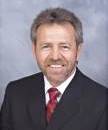

LB DJ Bill "Santa" Lovelace Offers $100 Holiday Discount For LBReport.com Readers. Plan Your Xmas Party Now! Click Here





3853 Atlantic Ave.
|
Click here |
Councilwoman
(November 12, 2004, updated text) -- 7th district Councilwoman Tonia Councilwoman In an agendizing memo to Councilmembers, Councilwoman Reyes Uranga writes as chair of the Council's I-710 Oversight Committee:
It is the recommendation of the Committee that the City Council adopt a
resolution recommending: i) that the 1-710 Oversight Policy Committee approve
the design concepts developed by the Long Beach 1-710 Oversight Committee
with significant input from the community as the Long Beach locally preferred
strategy pursuant to the Major Corridor Study for the purposes of environmental
analysis in the next phase of the process of examining potential improvements to
the 1-710 corridor; ii) that the 1-710 Oversight Policy Committee approve the
Opportunity/Strategy Recommendations and Conditions of the Tier 2 Committee
as guidance for the environmental analysis in the next phase of the process of
examining potential improvements to the 1-710 Corridor; and iii) that the issues,
concerns, and recommendations set forth in the Tier 2 report be fully analyzed,
evaluated and considered and appropriate mitigations of the impacts upon the
environment, community and residents set forth therein be identified in
conjunction with the next phase of the process of examining potential
improvements to the 1-710 corridor. The Tier 2 Report declares in pertinent part, "This is a corridor -- considerations go beyond the freeway and infrastructure...Health is the overriding consideration...Every action should be viewed as an opportunity for repair and improvement of the current situation."
The Gateway Cities OPC -- which is On November 8, LB's Asked for his views on Tier 2 Report, OPC Asked if he supports the Tier 2 Report, Councilman Colonna said he does...and added that he plans to advance it at the Gateway Cities OPC meeting.
As previously reported by LBReport.com, the Tier 2 Report declared in part [emphasis in original]:
2. Health is the overriding consideration.
3. Every action should be viewed as an opportunity for repair and
improvement of the current situation.
...[T]he I-710 corridor is more than just a place for trucks to pass through on their way to their final destination. It is the location of our homes, businesses, schools, parks, and lives. Today, particulates and other pollutants from diesel truck traffic in the I-710 Corridor and the ports of Long Beach and Los Angeles are our communities’ primary air-quality-related health concern. Therefore, the conditions for major infrastructure improvements must be as follows: [emphasis in original]
2. Major infrastructure improvements must be conditioned on achieving air
quality goals to protect public health; corridor air quality must comply with
county, state and federal standards prior to the start of mainline construction
and the entire project taken as a whole must result in a net reduction in criteria
pollutants.
3. Prior to the initiation of the environmental review process, all Tier 1
Community Advisory Committees must have formally endorsed the freeway
improvement design concept.
4. Prior to adopting a preferred alternative the OPC must conduct a study and
cost benefit analysis of potential goods movement alternatives as an
alternative to increasing the capacity of the I-710 Freeway.
5. A study of the impact of construction on air quality, traffic, congestion, noise
and impact on surrounding communities must be conducted, and if
construction does go forward, specific mitigation plans must be developed and
put into effect during the construction process to minimize and mitigate the
impact of construction on the surrounding communities.
6. Major infrastructure improvements must be conditioned on achieving a net
decrease in noise impacts upon the affected communities. Councilwoman Tonia On September 30, 2004, the Tier 2 Report was presented to the Gateway Cities OPC...which politely received it without taking immediate action.
On October 6, LBReport.com attended a joint meeting of the Gateway Cities Board of Directors and Executive Committee at which the Tier 2 Report was agendized to be received and filed. Those present included Sam Peña, Vice Mayor of Maywood, who co-chairs the OPC with LB Councilman Colonna. (Councilman Colonna wasn't present at the Oct. 6 meeting). After the meeting, we asked Vice Mayor Peña what he thinks of the Tier 2 Report. He told us:
LBReport.com: Well, they've produced this report. They apparently are taking this seriously, so you guys are agendizing it on the 28th [of October]
Vice Mayor Peña: We're agendizing it on the 28th and as you see in the report that came out [presented at the Oct. 6 COG meeting by Dr. John Husing, Ph.D., report for So. Cal Ass'n of Gov'ts, "Logistics & Distribution: An Answer to Regional Upward Social Mobility"] today on the study by Dr. Husing is, some of these numbers are staggering. Some of these numbers, they're projected numbers, are ahead of schedule. So for us to say that, you know what, we've got to take this really slow because [of] air quality issues, air quality are there, they're excruciatingly important in our area. We've got the highest rates for air pollution, cancer in our area alone. Extremely important, but at the same time, these issues are not going to go away by us not doing anything about it.
So we all have to come together and say what's the best solution for this? What is the best solution? And I think that the hybrid that the Technical Committee put together, it's a great start. Do we have to tweak it? Yes, we have to tweak it. I think it's, like I said, I think it's a matter of all of us coming to the table together. The October 28th Gateway Cities meeting was put off until November...and Councilwoman Excerpts of the Tier 2 Committee report follow, along with a hyperlink to the full 80 page report.
[begin text]
Tier 2 Community Advisory Committee Major Opportunity/Strategy Recommendations and Conditions August, 2004 TIER 2 COMMITTEE MEMBERS
Harold Arsenian*
Dr. Ed Avol
Hamid Bahadori
Gerald Burgess*
Victor Caballero*
Gustavo Camacho*
Malcolm Carson
Roberto Chavez*
Louis Diaz
Clifford Dunbar*
Bob Eula*
Belinda Faustinos
Larry Galvan*
Julie C. Gonzalez*
Steve Goodling
Patricia Herrera*
Roger Holman*
Alan Hose*
Tom Houston*
Randy Kendrick
Bobbi Kimble*
Angelo Logan
Dr. Joseph Magaddino
Mandy McLaughlin*
Dr. Domenick Miretti
Dr. Elisa Nicholas
Harold Omel*
Servando Ornelas*
Bill Pagett
Noel Park
Ray Park*
Luis Romero*
Patty Senecal
Harold Tseklenis*
Linda Vitale*
Rod White*
Harold Williams
*Designated Tier 1 Community Advisory Committee Member representing corridor communities. Note: Some communities had a change in representatives during the process Executive Summary INTRODUCTION This report presents the final consensus resulting from nine months of deliberations by a broad-based group appointed by I-710 corridor communities and the I-710 Oversight Policy Committee. Known as the Tier 2 Committee, this group represented a broad base of interests, including local communities, academic, environmental, business, community and environmental justice. The most directly impacted communities in the corridor were invited to form community-level committees (known as the Tier 1 Committees). The chairs of these committees were also represented on the Tier 2 Committee, along with a representative named by each City Council in the remaining corridor cities. The following guiding principles define the priorities of the Tier 2 Committee and reflect the consensus that emerged during this process: 1. This is a corridor -- considerations go beyond the freeway and infrastructure. The Committee recognizes that something must be done to address the current congestion and design of the I-710 freeway. The high number of trucks on the freeway uses up capacity and the mix of cars and trucks poses a serious safety concern. The committee agrees that the hybrid design concept presented could accomplish maximum build out in a manner that reflects the Tier 1 CACs’ concerns and recommendations for their communities, with the exception of the City of Commerce and East Los Angeles area, which require further study. However, the I-710 corridor is more than just a place for trucks to pass through on their way to their final destination. It is the location of our homes, businesses, schools, parks, and lives. Today, particulates and other pollutants from diesel truck traffic in the I-710 Corridor and the ports of Long Beach and Los Angeles are our communities’ primary air-quality-related health concern. Therefore, the conditions for major infrastructure improvements must be as follows: 1. Implement a corridor level action plan to improve community air quality. The Committee recognizes that certain aspects of the design concepts, particularly for designated on-ramps, may be appropriate for implementation prior to addressing the "mainline" issues. However, these improvements cannot be constructed in isolation from all of the other recommendations such as public health, community enhancement, and noise abatement. The I-710 design must take into account the safety and quality of life of the communities in the corridor, including provisions for greenbelts and open space... HEALTH Air quality is the number one public health issue. Poor air quality has had significant negative impacts on public, economic, environmental and community health in the corridor. Particulates and other pollutants from diesel truck traffic in the I-710 Corridor and the ports of Los Angeles and Long Beach are our communities’ primary air-qualityrelated health concern. The first consideration for approval of any improvements within the I-710 corridor must be the project’s ability to reduce air quality impacts. Therefore, these steps must be taken before construction can begin on the “mainline” project to reduce air pollution. The Tier 2 Committee recommends the following air quality improvement strategies: 1. Develop an action plan to improve air quality in the corridor. ... SAFETY The I-710 corridor is one of the most unsafe freeways in the State. Increasing truck traffic, conflicts between cars and trucks, aging infrastructure, and outdated design are all contributing causes to accidents in and around the freeway. The high concentration of older trucks, which frequently become disabled, poses a significant safety hazard, as do truck intrusions into nearby communities and neighborhoods. Just as the Alameda Corridor helped reduce conflicts between trains and automobiles, any improvements to the I-710 corridor must resolve the inherent conflicts between automobiles and trucks. The Tier 2 Committee recommends the following safety improvement strategies: 1. Continue support and implementation of safety programs. NOISE Excessive noise is a serious public health concern in the corridor and cannot be resolved by simply building more sound walls. A comprehensive analysis of noise along the corridor must lead to a plan that recognizes the health impacts to our communities and seeks to resolve those impacts by providing appropriate relief. Major infrastructure improvements must be conditioned on achieving a net decrease in noise impact upon the affected communities. The Tier 2 Committee recommends the following noise control strategies: 1. Provide appropriate and effective sound walls to reduce noise impacts to neighborhoods and schools adjacent to the freeway. ... ORGANIZATION AND PROCESS To ensure that the work of the Tier 2 Committee is carried forward as set forth in the full report, a task force of representatives from the Tier 2 CAC, the OPC and the TAC should be established to plan and oversee the implementation of the conditions and recommendations of the Tier 2 CAC. The Tier 2 Committee recommends the following organization and process strategies: 1. This Tier 2 Report will be formally "agendized" and presented to the OPC when it convenes in September 2004 for its consideration and decision. All Tier 2 members will be invited to the OPC meeting, and the presentation of the Tier 2 report will be delivered by a representative group of Tier 2 spokespersons. CONCLUSIONS AND NEXT STEPS This report is hereby presented by the Tier 2 CAC to the I-710 Oversight Policy
Committee. The Committee expects that its recommendations will be carried forward by
the OPC, the Gateway Cities COG, the Los Angeles County Metropolitan Transportation
Authority (Metro), the Southern California Association of Governments (SCAG) and the
California State Department of Transportation (Caltrans). Further, we expect our
recommendations to be used as required guidance in the planning and development of
future corridor improvements. The Committee and the communities we represent expect
to have continued formal and meaningful participation in the I-710 corridor improvement
process and look forward to working with the OPC and future project sponsors toward an
improved and revitalized I-710 Corridor.
The full 80 page report can be viewed at: Tier 2 Advisory Committee Final Report (pdf file)
Contact us: mail@LBReport.com |